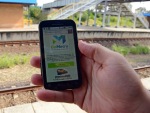 How do we encourage informed, respectful and rigorous debate – and safer streets – when sensationalism is what sells and online forums encourage anonymity and contempt?
How do we encourage informed, respectful and rigorous debate – and safer streets – when sensationalism is what sells and online forums encourage anonymity and contempt?
On Monday morning, I gave a presentation at the City of Cape Town’s Cycle Safety Discussion, about the legislation and regulations that encourage cycling in countries with high bicycle mode share. I suggested that if Cape Town, and South Africa, is to take bicycle safety and bicycle promotion seriously, these regulations and bylaws should be contemplated… (contemplated, i.e., thought about, not immediately enacted…)
As I have been misquoted by the press fairly often, I opened my presentation requesting that any journalists present be mindful of the possible mis-interpretations and contact me for clarification. As a friend, a criminal defence attorney, puts it: when he reads press reports of his trials, he wonders if the journalist was even in the same court room as he was.
And so it was on Tuesday…
Inaccurate reporting – and the the wildly emotional and uninformed responses based on what was inaccurately reported or understood – is counter-productive to the goals of the Cycle Safety Discussion attended and reported on. It is precisely this type of mis-information that generates the slanging matches and hostile letters, SMSs and comments online; the kind of feud-fueling sensationalism that I so specifically asked journalists present to avoid. It leads, too, of course, to increased aggression and conflict on the roads.
Amazing how quickly the following slide:

leads to a claim that I said ‘stopping at red traffic lights, yield signs and stop signs is unnecessary’… And that all cyclists MUST ride abreast…
ends up as my saying that cyclists should not wear helmets…
What’s the way forward, I wonder? Hold seminars and conferences off-the-record? The media are not the only ones to misunderstand – politicians and decision-makers also ‘picked up stompies’ after the discussion, as one colleague put it, and argued vigorously against proposals that had not in fact been made…
So how do we encourage informed, respectful and rigorous debate – and safer streets – when sensationalism is what sells and online forums encourage anonymous outrage and contemptuous displays of ignorance?





[…] publisher of the Cape Town Bicycle Map and researcher about transport equity, policy and best practice. She’ll compare Cape Town ‘then’ and now and see how far we’ve come… […]